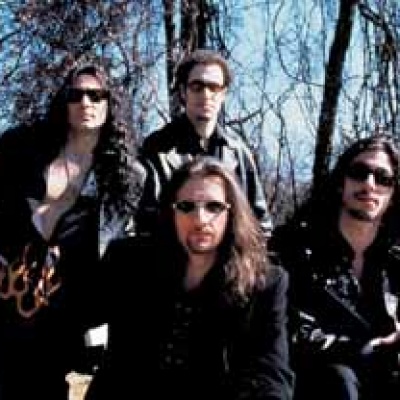
Virgin Steele
by Bryan Reesman Despite the fact that they are an American band, Virgin Steele are gradually becoming a European metal phenomenon. The group -- perennially led by vocalist/keyboardist David DeFeis since their inception in the fall of 1981 -- is a fine example of a heavy metal band that assimilates classical influences into its romantic, symphonic-based sound. Virgin Steele began humbly with two self-released albums which, after being picked up for international distribution, brought in combined sales of nearly 400,000 units and critical praise from the metal underground. British metal mag Kerrang! even compared them to early Judas Priest. The group's intriguing blend of classical, metal, and a touch of prog manifested itself fully for the first time on their third album, the groundbreaking Noble Savage. This album marked a change for the band in the departure of original guitarist Jack Starr -- whose more traditional anthems clashed with DeFeis' grandiose epics -- and the arrival of talented shredder Edward Pursino. The following album, Age of Consent, was more commercial than its predecessor, attempting to appeal to both hardcore and mainstream metal fans. Management and label problems prompted a hiatus which ended in the early '90s, when German interest rekindled the spark for the band. While the ensuing album Life Among the Ruins stayed closer to the '80s, the following two records, The Marriage of Heaven & Hell, Parts 1 and 2 were powerful epics which cemented the group as one of the greatest bands in the genre. The latter album marked the departure of original drummer Frank Ayvazian and new skinbeater Frank Girlchriest. Marriage 2 sold very well in Europe and hit number five on the Japanese metal charts. House of Atreus Act 1 followed in 1999. The second volume in the House of Atreus Act series appeared two years later.
